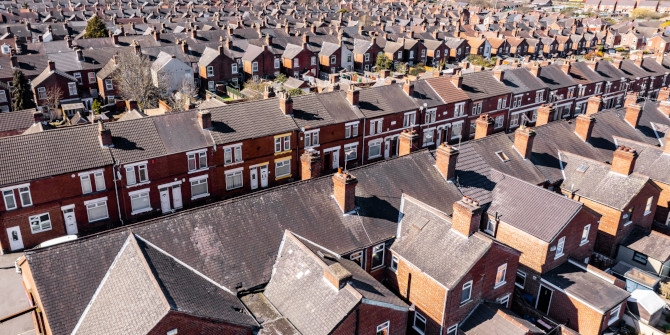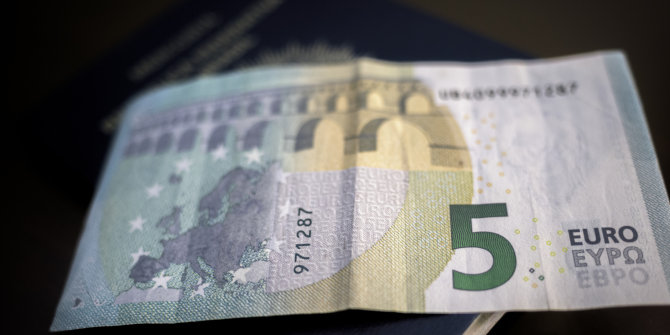The European Cities Programme at LSE Cities recently spoke with six mayors from across Europe about what first drew them into city politics and what makes for a good urban leader. Imogen Hamilton-Jones reflects on the lessons for inclusive and empowered city leadership in times of growing political disaffection and polarisation.
The research in this article will feature in the Displays of power exhibition during the LSE Festival 2024.
“I had no intention of going into city politics,” Marvin Rees remembers, “I actively dismissed a Labour Party workshop about mayors in 2011, thinking that change was best pursued in Westminster”. But, when Bristol voted to introduce a directly elected mayor a year later, Marvin decided to put himself forward. Initially, he was swayed by the advice of friends and mentors, but, over the course of his two terms as Mayor of Bristol, he has “understood the growing significance of cities in general and city leadership in particular”.
He is not alone in believing city politics has a special role to play in driving change. Mohamed Ridouani, Mayor of Leuven, observes that “in Belgium, few people have confidence in [national] politicians… people only see the political fights, and no longer see results [and] improvements in their lives… [but] in city politics, it is still possible to collaborate constructively and to make a difference”.
For Kostas Bakoyannis, until recently Mayor of Athens, working in the city government is fulfilling in part because it is “action-based”. As he explains, “Our work concerns tangible, visible, measurable results. It’s about the small things that make a big difference on people’s everyday lives. In this way, mayors… get to close the gap between political institutions and citizens.” Closing this gap and building relationships of trust and collaboration with urban residents is never easy, but city leaders argue that they are well positioned to try.
The politics of proximity
Leading a city is, for the mayors we spoke to, inextricably linked to the everyday experience of living and working in it. Their motivations for entering city hall are often founded on a deep and personal connection to place – for Femke Halsema, Mayor of Amsterdam, the city was “where my children were born. I want Amsterdam to be a great place for all children to grow up in.”
Matúš Vallo, Mayor of Bratislava, spent his early professional life as an activist and architect in the city. His move into institutional politics “was encouraged by seeing high-ranking officials of other cities who were former activists. I realised that the process was not a betrayal, but a normal development.” His journey from activist to politician is an increasingly common one in European cities – from Zagreb to Barcelona to Istanbul. It speaks to the emerging theory and practice of radical municipalism, which highlights the powerful “politics of proximity” inherent to cities and celebrates the porous boundary between city governments, civil society and citizens.
To keep closing the gap between citizens and political institutions, city politics needs to be open to diverse voices. Some mayors felt progress is being made here: Susan Aitkin, who first joined Glasgow’s government “with a view to improving women’s representation”, feels that “even in my six years as city leader there’s been a significant demographic shift within city politics and an improvement in the number of women, people of colour and younger people within my own council group. That’s brought with it real talent and commitment to city politics”.
Yet, she acknowledges that “we’ve still some way to go”, and recent research by the European Cities Programme at LSE Cities confirms this: out of the 162 cities included in our European Cities Knowledge Hub, only 31 are led by women, only seven come from an ethnic minority background and just six are under 40 years old.
Challenging traditional models of leadership
We asked mayors how European city governments should respond to this stark lack of diversity. What changes in urban political processes and cultures are needed to bring new players into positions of leadership?
They responded that deliberate schemes are needed. Matúš Vallo cited the Camp Bratislava festival, now in its second year, “a platform for all young people who care about how we live – from the financing of our state and city to how we take care of the physical appearance of the city”. Marvin Rees recalls how his own “gateway was through Operation Black Vote… that reached out to black and Asian talent and set up a structure to connect that talent with political opportunity”.
But building a diverse “politics of proximity” in Europe’s cities also calls for deeper shifts in the political cultures of city government. Municipalists from across the globe have recently asked what a fundamentally inclusive feminist city government would look like, and what kinds of values and behaviours it would ask of mayors. Caren Tepp, Councillor for Ciudad Futura in Rosario, Argentina, has reflected: “a leader is not the coach of a football team. She’s more like a captain, who plays alongside the others, who knows them and is there for them. She can make mistakes and be called into account like any other”.
Something of this spirit resonated with the city leaders we spoke to in Europe who rarely saw leadership in individualistic terms. In Matúš Vallo’s words, “a mayor’s results depend on… a good team, [and] whether [they] know how to take care of it and listen to it”. For Marvin Rees, “appointing a good team” means picking “people who are smarter than you” and mayors need to be prepared to bring their “imperfect selves to imperfect structures”. In their emphasis on care, cooperation, humility and good listening, these mayors seem committed to challenging traditional models of political leadership defined by hierarchy, confrontation and competition.
A collaborative vision
Feminist political cultures not only promise more inclusive city governments but can also work beyond the walls of city hall to help bridge the gaps between political institutions and citizens. Femke Halsema recognises that any mayors’ ability to forge progressive change is founded on citizens’ struggles and on collaborations with civil society and social movements.
When asked about her proudest achievement as mayor, Halsema points to a moment in 2021 when she “apologised on behalf of the municipality for [Amsterdam’s] involvement in global slavery on which an important part of the city’s historical prosperity is based. Recently, the national government has also apologised. This is the result of the black community’s decades-long struggle for recognition of suffering and structural racism. The emancipation and new pride among black Amsterdammers gives hope for the future.”
Strongmen leaders may continue to command attention on national political stages across Europe – in November 2023, the shock winner of the Dutch elections was Geert Wilders (who monopolises decision-making as the only official member of his party – and is currently proposing to retract all national apologies for slavery). But the city leaders we spoke to recognise their urgent role in upholding an alternative, more collaborative vision of politics, one which de-centralises power and makes space for diverse voices, values and hopeful futures.
This piece builds on profiles of six European mayors included in Old Cities, New Ambitions: The Future of Urban Europe, published by the European Cities Programme at LSE Cities in July 2023
Note: This article gives the views of the author, not the position of EUROPP – European Politics and Policy or the London School of Economics. Featured image credit: Frans Blok / Shutterstock.com






